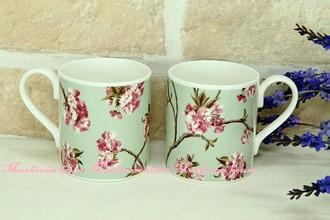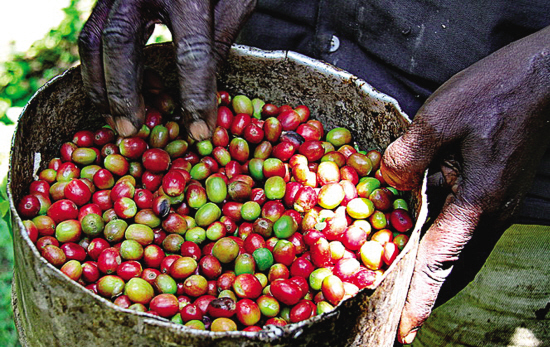What kind of cups and pots are suitable for individual coffee? What kind of cup is suitable for individual coffee?
The single coffee cup is somewhat similar to the British black tea set, the top grade coffee cup is generally made of bone porcelain, because the bone porcelain is light and thin, and has a very good thermal insulation performance, so it is very suitable for drinking single coffee.

Good tea should be equipped with a good tea set, just like drinking tea, when tasting high-grade individual coffee, such as Blue Mountain Coffee, Brazilian Coffee, Italian Coffee, Colombian Coffee and so on, you also need to have the corresponding individual coffee. After all, it is difficult to drink coffee with a mug or disposable paper cup. Then what kind of coffee cup is better?
The single coffee cup is somewhat similar to the British black tea set. The top grade coffee cup is generally made of bone porcelain. Because the bone porcelain is light and thin, and has a very good thermal insulation performance, it is very suitable for drinking single coffee. In addition to bone porcelain, ceramic coffee cups are also a good choice. If bone porcelain is an aristocratic cup, then ceramic coffee cups are undoubtedly the first choice for personality shops. In particular, each shape of the handmade pottery cup will be different, which highlights the personalized demand, and the thermal insulation performance is also very excellent. Of course, in addition to the above two materials, ordinary porcelain cups can also be regarded as a more economical choice.
The Choice of Coffee Cup Bone porcelain Cup becomes the best single coffee cup
Individual coffee cup is generally required to be composed of a cup and a plate, and the capacity of the coffee set is generally between 150ml and 180ml. The reason why you do not choose a large amount of coffee is to allow a cup of coffee to be drunk as soon as possible. To prevent the coffee from turning sour after a long time.
When we buy individual coffee cups, we must avoid coffee sets with gold and silver plated at the mouth of the cup, especially those of poor quality, and we need to pay special attention to them. if we open a coffee shop, foreign customers will be very disgusted with the appearance of such coffee sets.
The article comes from China Cup Kettle Network
Important Notice :
前街咖啡 FrontStreet Coffee has moved to new addredd:
FrontStreet Coffee Address: 315,Donghua East Road,GuangZhou
Tel:020 38364473
- Prev

Delicious exotic African coffee African specialty coffee Taste African specialty coffee Taste characteristics
Nowadays, African single-product coffee occupies a place in Fuzhou coffee consumption market with its high-quality characteristics. The reporter learned from many cafes in Fuzhou that more and more people drink single-item coffee, many of whom choose African single-item coffee. Industry insiders believe that more and more people drink single-item coffee, indicating that the coffee consumption market is becoming more and more mature, and consumers 'understanding of coffee is constantly improving.
- Next

Introduction to the Variety characteristics of Typica Coffee beans the flavor and taste characteristics of Tieka coffee
Typica Tiebika is the species name of coffee beans and is one of the oldest of many Arabica species. Iron pickup, also known as the old variety of small-grain coffee, its yield is less, cultivation is difficult, so the price is much higher than ordinary small-grain coffee. Tibica coffee is originally from Egypt.
Related
- Beginners will see the "Coffee pull flower" guide!
- What is the difference between ice blog purified milk and ordinary milk coffee?
- Why is the Philippines the largest producer of crops in Liberia?
- For coffee extraction, should the fine powder be retained?
- How does extracted espresso fill pressed powder? How much strength does it take to press the powder?
- How to make jasmine cold extract coffee? Is the jasmine + latte good?
- Will this little toy really make the coffee taste better? How does Lily Drip affect coffee extraction?
- Will the action of slapping the filter cup also affect coffee extraction?
- What's the difference between powder-to-water ratio and powder-to-liquid ratio?
- What is the Ethiopian local species? What does it have to do with Heirloom native species?

